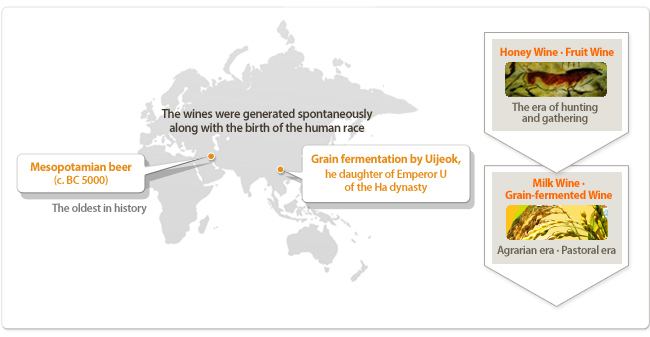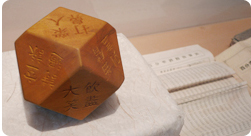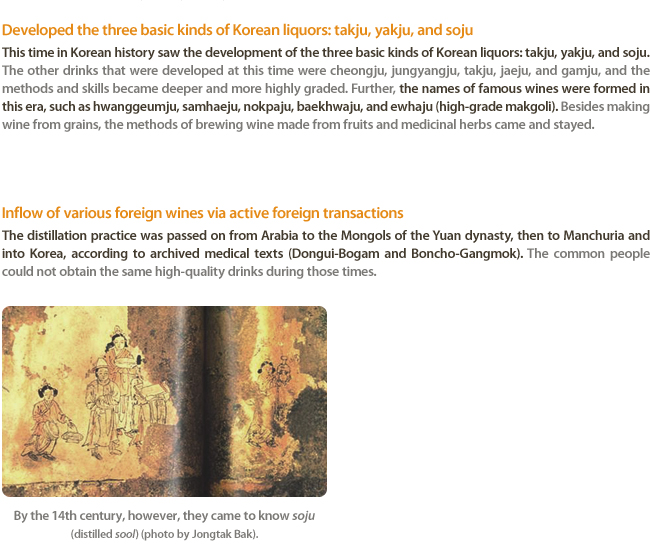
The Origin of Korean Wines The Eras of Baekje and Gogurye Silla and Unified Silla Koryo Dynasty Chosun Dynasty Japanese Occupation (1910-45) After Liberation
The Chinese character ju for alcohol was derived from a special pot that is used for fermentation. It has a pointed bottom and an amphora-like shape, which make it easy to separate the sediments that have settled at the bottom.
The Korean word sul, on the other hand, originated from the Chinese words su (meaning “water”) and bul (meaning “fire”). Over time, it came to be abbreviated as sul. The term “fire water” came from the boiling appearance of fermenting liquid (The Origin of Wine).
酉 => 酒
There is an old saying that goes, “Water was created by God, and sul was created by humans.”
The origin of alcohol is steeped in mythology. In Egyptian mythology, Isis’s husband Osiris taught the god of grains how to make beer. In Greek-Roman mythology, Dionysos-Bachus created the first alcohol. In the Old Testament, it was Noah, and in Chinese mythology, it was Princess Weechok.
What about Korea? The first alcohol story in Korea appeared in Jewang-Ungi, one of Korea's historical-archive books. It tells of a king who uses alcohol to seduce a woman and to make her pregnant. Her son’s name, in Chinese characters, was Sul.
Although there is little written evidence of the origin of alcohol in Korea, this does not prove that it was introduced thereto by China. It is possible that the process was introduced to Korea and China simultaneously by the first tribes that migrated to China and the Korean peninsula from Manchuria.
Korea has a long history of sul and of fermented foods.

















































